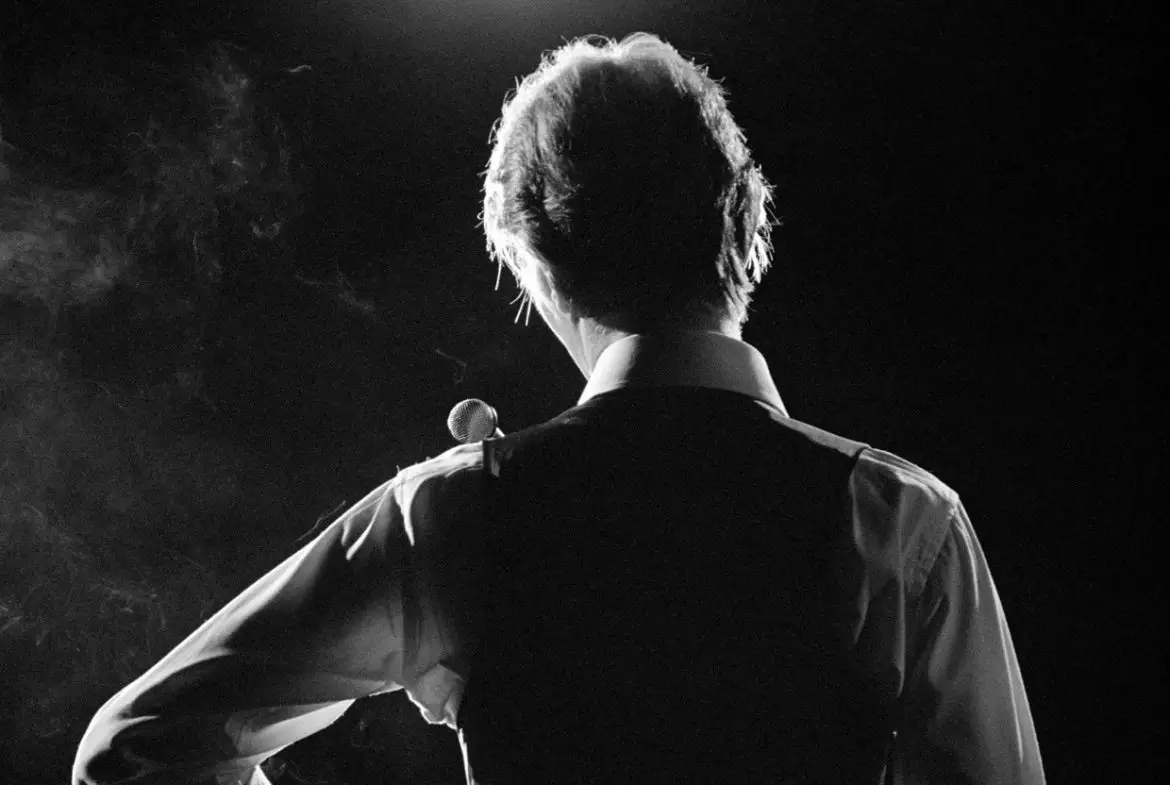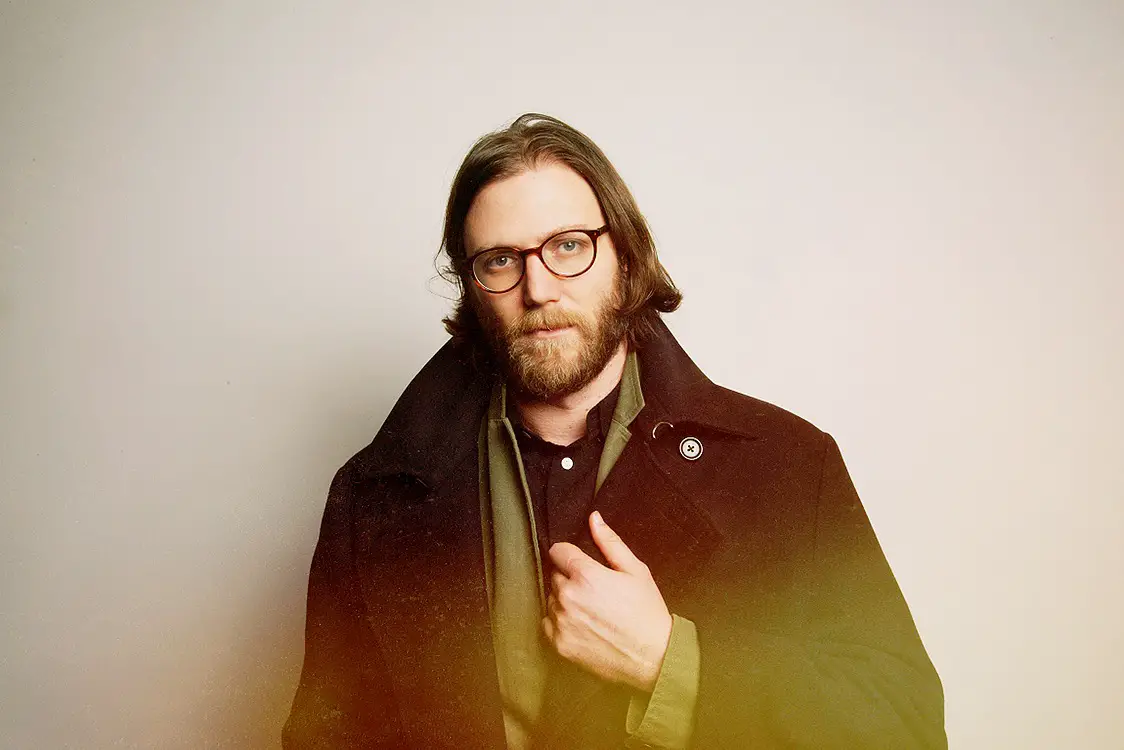David Bowie’s career spanned more than fifty years in the twentieth and twenty-first centuries and his impact on music and culture is indelible and poignantly unparalleled. Bowie continually created new and liberating ideas on the self in moving away from common perceptions of how life was constructed to be lived in society, while empowering the force and vivacity of the imagination as to how one could exist in the world.
Dreaming of Bowie explores the meaning and resonance of Bowie’s music in reflecting on existence amidst the paramount significance of exploring human relationships through the dimensions of isolation, alienation, love, friendship, and memory.
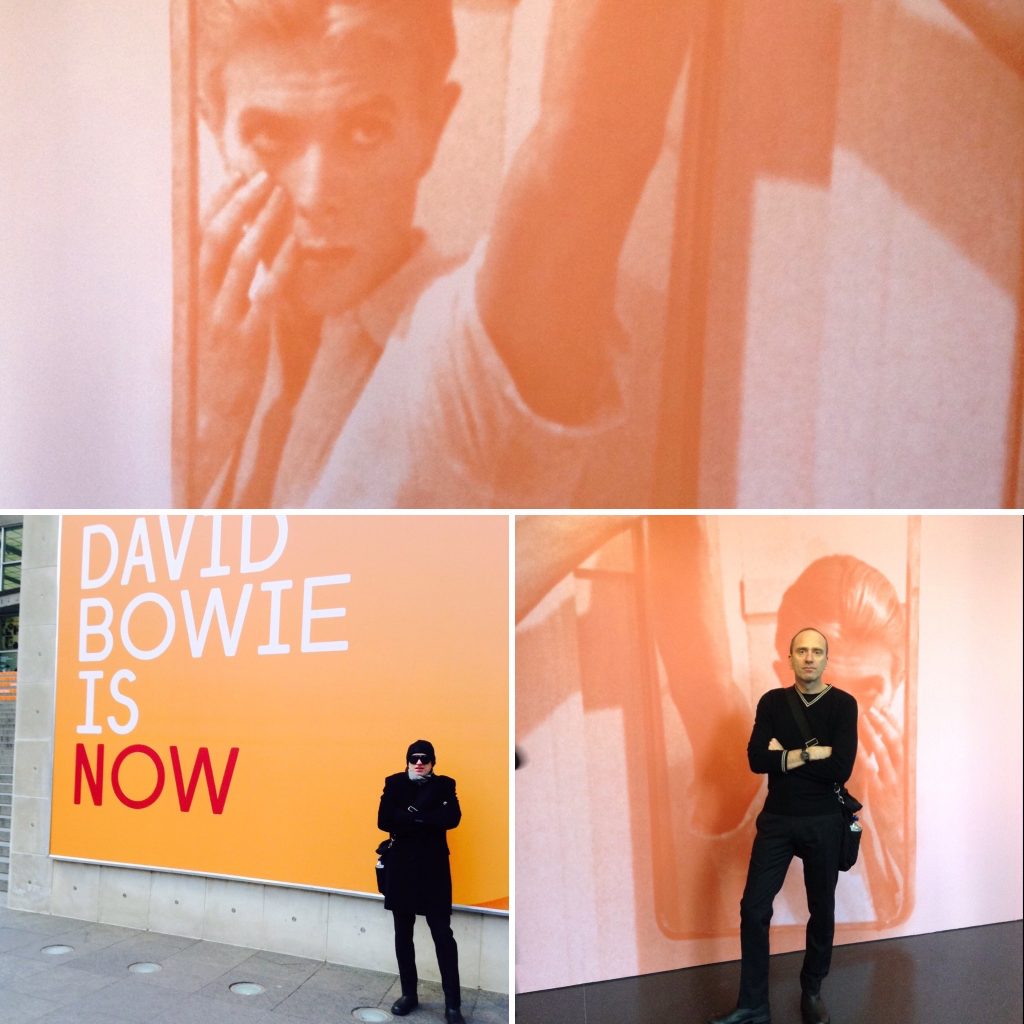
“The episodes that give my life some structure are surprisingly often provided by David Bowie’s words and music. He ties my life together like no one else I know.” – Simon Critchley, Bowie (Critchley 16)
“There is a world of people for whom Bowie was the being who permitted a powerful emotional connection and freed them to become some other kind of self, something freer, more queer, more honest, more open, and more exciting. Looking back, Bowie has become a kind of touchstone for that past, its glories and its glorious failures, but also some kind of constancy in the present and for the possibility of a future, even the demand for a better future.” – Simon Critchley, Bowie (Critchley 17)
Through Bowie’s music we are always immersed in different stages of being and experience that are continually being transcended through the years and arc of his artistic vision, and in turn we can witness and reside within the realms of possibilities that he offers as varied ways of knowing the self and what this can possibly mean in our contemplation of mortal life.
Bowie’s music always dwelt within the spheres of isolation and alienation as these realms of experience and emotion are so inextricably entwined with the human condition. In recognition of these spheres that haunt the panorama of what it means to be human — freedom and hope can be experienced, if one is willing to resonate in the dilemmas that Bowie explores through his mind and what he offered to the world in his lyricism, music, and captivating presence. Bowie also enables a very different perspective on the position of the human and how we are always living amidst loss and silence in our limited time on this planet, yet he has also provided us with a new language in which to articulate our greatest fears and ways to also understand our most intense emotions.
•• ••
written by guest writer David M. Buyze
•• ••
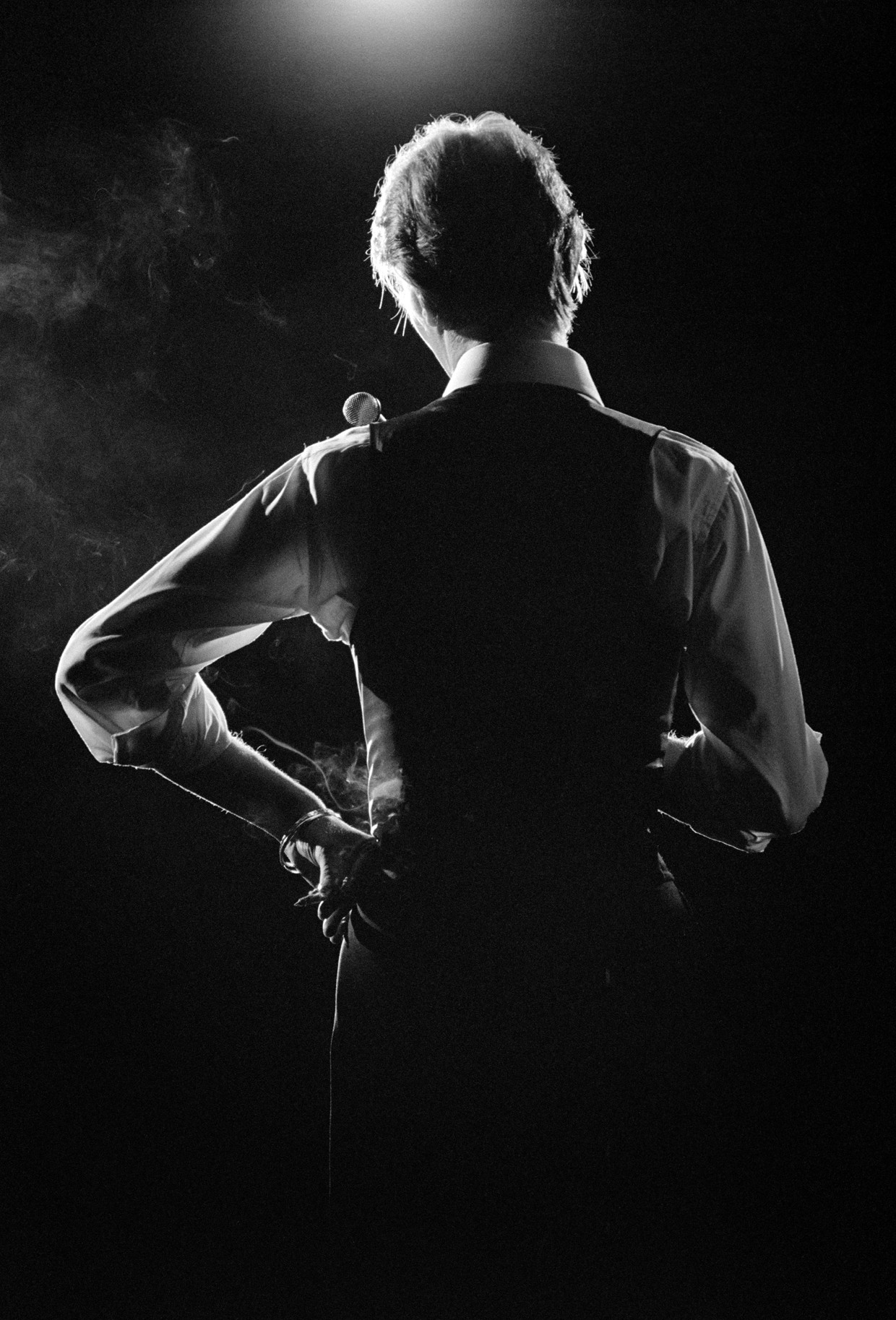
He stepped back from himself, and realized that David Bowie’s life had seemed like a dream as one who had so heavily impacted the world through music in such a revelatory manner that it was quite unfathomable. Bowie was the beginning of everything in altering his own worldview, and through inhabiting his music throughout his life, he had created a unique sense of inspiration that led him back to thinking on the meaning of life and what it meant to dream of something beyond the ordinary. To dream of creating something of meaning and the feeling of having lived a life that possibly mattered in a way that was outside of one’s self. Perhaps the most singularly difficult aspect is to sense this in the world amidst the cacophony of striving for significance. It was this perspective of truly living besides one’s self that he saw reflected in the many personas and alter egos that Bowie created, and in this he also experienced a liberation of his own understanding of self in moving away from the common perceptions of how life was constructed to be lived in society. He had began to realize that things could always be otherwise from the roles of living that were seemingly envisaged, and that all of this utterly hinged upon the power of the imagination in how one saw the world and overturned the predictability of life amidst the assumed roles that one was imagined to be living. There were inklings of this earlier in his life as he had never quite felt that he fitted into the fabric of how most people held themselves in relation to others and the groomed space that they simply seemed to inhabit without reflection.
In this world, he yearned to go very far away in his mind, and even though he did not yet know where, he was entranced with the idea of an escape from what had become his habitual and seemingly monotonous life, yet monotony was perhaps that particular condition of being human, and in this, how was transcendence possible? His sense of creativity through the imagination had always been a desire and source of dreaming for him but he had often become paralyzed or imprisoned within its own sense of refuge in which music was the only solace. He had inadvertently become trapped in his own mind and the power to create and live more vibrantly was seen and felt as diminishing. The more and more he thought about this, he realized that this had to change for perhaps his own sanity was at stake. It had become more settled within him after that afternoon trip to the David Bowie Is exhibit on New Years Eve day in downtown Chicago on December 31st, 2014. It seemed to pivot on entering into the nostalgia of time in which he felt the unfolding or a shifting of his consciousness that was highly impacted by hearing an audio clip from the 1970’s where Bowie spoke of his fear of insanity or suicide because of its prevalence on his mother’s side of the family. Not that he himself shared this fear or influence but what was much more significant was hearing the tremor in Bowie’s voice at the thought of this in marking a vital feeling of why he had hurtled himself into creativity through theatre and music. Of course, suicide had entered his own mind on occasion as this only seemed to be a normal part of the human condition, but always the overwhelming desire to experience the wonders of life had quashed such considerations. In his own experience, he had always seemed to possess some sort of insight or degree of contemplation on being human, and he decided the story needed to be told was the magnificence of how music could carry you away to spaces of the mind which you could inhabit with no restraints or expectations. This was the only story that he saw as having paramount significance, and in turn he envisioned it as one in which others could also possibly feel a sense of comfort and resonance. There were such exquisite moments of pain, sorrow, happiness, wonder, and intense degrees of elevation that could be felt in inhabiting a song, and of course even more intently was how two people could share their beings in a moment that was irreplaceable, often transitory, but imprints on one’s memory remained. Years and even decades later, traces of those particular moments and hours remained as if that time was only yesterday. Through the ephemerality of existence one could feel the trajectory of one’s life flourish out of the sentiment and arc in the melody of a song as the memory that hinged on a particular experience collapsed and refracted in the dissolution of that time.
There was a significant existential thread that resonated out of this through Bowie, and this had come to settle on seven impactful songs from Bowie’s oeuvre: “Life on Mars?,” “Slip Away,”“Bring Me The Disco King,” “Five Years,” “Loving the Alien,” “Where Are We Now?,” and “Blackstar.” These songs are so incredibly substantive in pivoting on time, memory, isolation, dissolution of love, and the fragility of life.
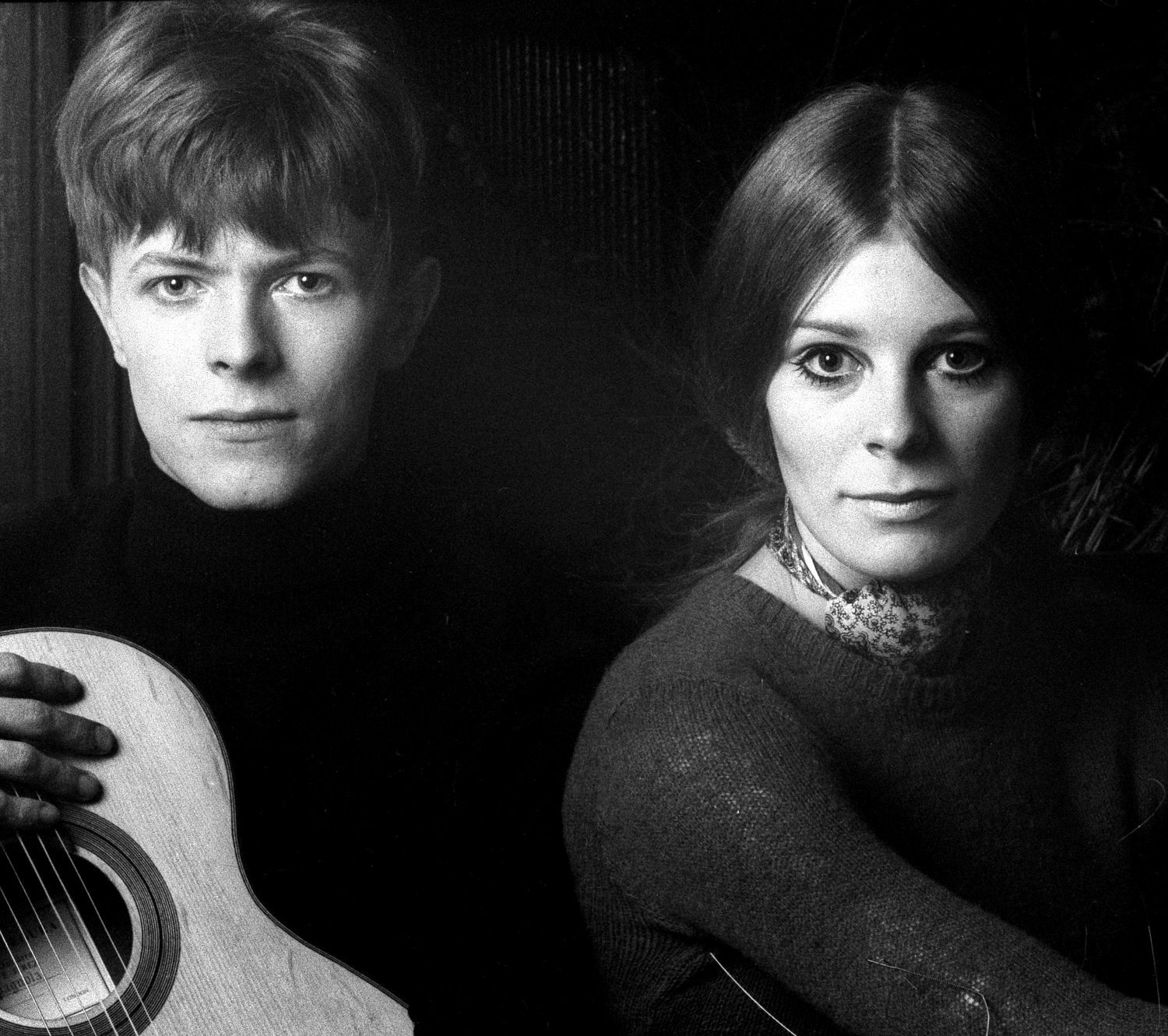
It was there in the most haunting manner in the song “Where Are We Now?,” which permeated with the feeling of trying to experience what was no longer possible within the aching sense of contemplating mortality. Simon Critchley reflects on this song in his book Bowie as he compares it to the track “5:15 The Angels Have Gone,” from the album Heathen, “This is a more elegiac experience of love, dominated by the reality of absence, of a past that is unrepeatable and utterly gone. Never more. This is also the core of “Where Are We Now?,” which is perhaps a eulogy to Bowie’s loyal assistant in the 1970s and sometime lover Corinne “Coco” Schwab. But love finds a concrete focus in relation to specific time and place: Berlin in the late 1970s.” (Critchley 135). Bowie is rather more so referring to one of his first loves – Hermione Farthingale whom he met in the summer of 1968. (Morley 172). After she left him, she played a part as a dancer in the film version of Song of Norway in 1970 which is crucial to consider in viewing Bowie’s video of “Where Are We Now?” in 2013 as he wears a “Song of Norway” T-shirt. (Morley 175). Paul Morley further elaborates on the context and significance of the relationship of Bowie and Farthingale when he writes in The Age of Bowie:
“Elsewhere on his second album [David Bowie], on what’s left of the earth of the 1960s, back among the lost flower-power souls who think everything is going to be OK by just letting it happen, Bowie also sang a tormented, tearful love letter [“Letter to Hermione”] to his great lost love, the frail, gorgeous, gamine Hermione. He says goodbye to his girl, and that particular past, as if the contract he had signed was over and he was now ready or expected to play a different character, one that might even wipe his memory unless he finds a way to remember, sometime in the future he is helping to build and can’t believe will ever end.
Hermione is also having to play a new character and become someone else, and if there were real feelings as they played out the romance that would take place in the history of Bowie, then nothing can be done about that. It was only meant to be for a short time. They played their parts. They moved on, and she might be a better person because of it, and he has other things to do, other truths to manufacture, other humans to deal with, and other contracts to sign. The kind of love he had with Hermione cannot be part of that. He must be on his own, however surrounded by other people, where the world makes most sense, and where his work comes from, is inside his head.
Bowie never forgot Hermione, a first, tough glance at the disruptive realities of love. Or, if he did forget about her, to move on, he would remember her again when the time came to think more clearly about the old days, because he had no choice. He wore a Song of Norway T-shirt in the video for ‘Where Are We Now?’, about how he keeps his past inside his head.” (Morley 194-95).
To retreat into one’s memory and to sense the loss of time and people within what is no longer possible in reality can be one of the most frightening human experiences, yet it is also conceivable that in these spaces there exists an optimistic fabric of tenuously and intimately feeling the wonder of life in a bittersweet sense of melancholy as Bowie reverberates on his past life in Berlin and his long lost love Hermione Farthingale many many years before Berlin. How many of us desire to return to a place that seems to hold so much weight and meaning in our minds yet we subconsciously know that if we were to return that it could never be with the same feeling since the experience has dissipated forever. Bowie had remained thinking of Hermione throughout his life, and he felt such a remarkable degree of affinity with this feeling, as in most days of his life he continually thought of those lost loves.
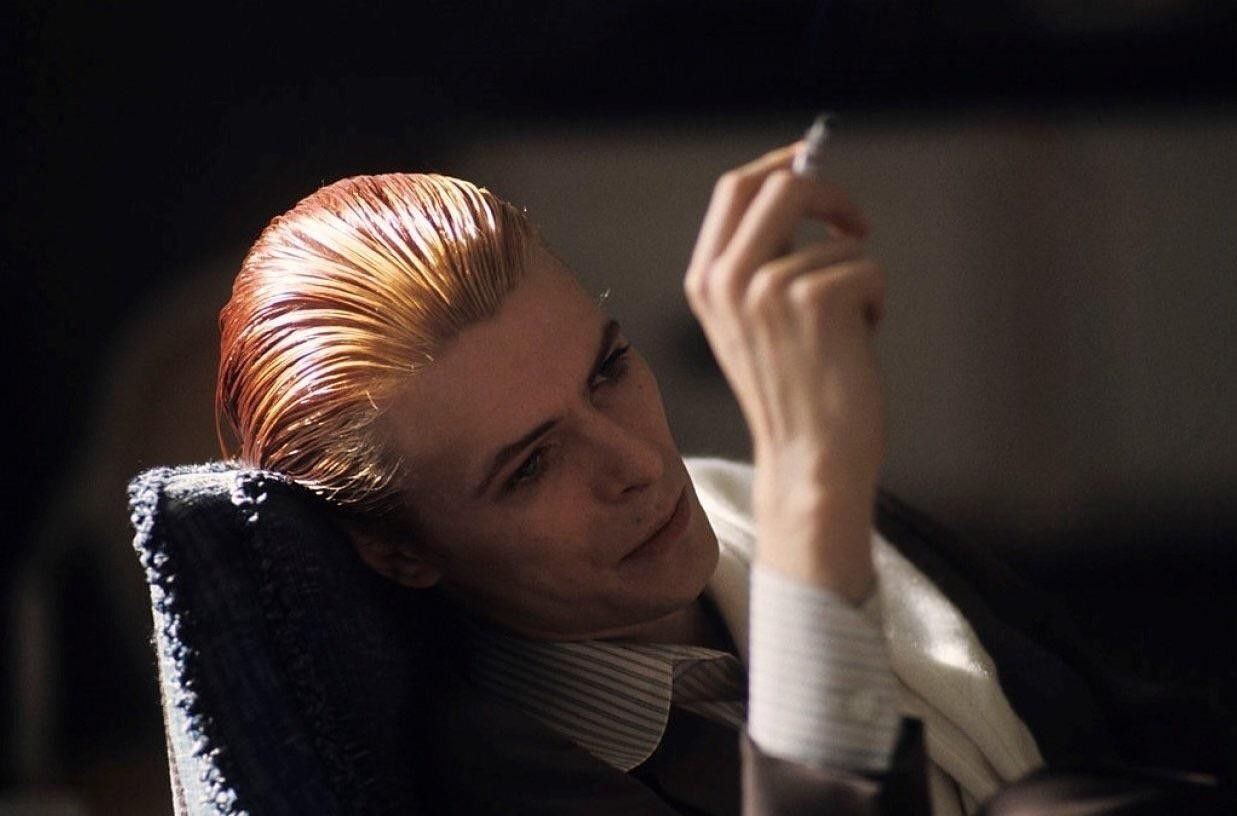
He had reflected on this countless times as there were lovers in his past that he yearned intensely to feel once again through their smell, sweat, and sex in that irreplaceable intermingling of beings where intimate desires and hidden fantasies were revealed. A chance encounter in his own life embodied this sentiment more fervently and one in which he relived throughout time in his mind was with Jacqueline where the immediacy of passion and attraction was so undeniable in which she became his pinnacle of desire in creating a different reality together. It was at a party in his apartment in Colima where his friends Sabina, Aidan, and Oscar where visiting from California, and at that time he was with Melissa – a lovely young woman that he befriended and rather seduced at the university. She was adoring, remarkably warm, and he really liked her – she seemed so comfortable amidst times of passion and intrigue that were also tempered by a certain demeanor of hesitation. She was with him, but at the same time she appeared to want to somewhat culturally hide the real significance of their relationship which revolved around having sex before marriage, and the provincial stigma associated with that in regard to shaming and religion. Yet, there was more at hand than this issue which she could rather easily hide from the culture, and he never quite grasped what that exactly was, as she was certainly into sex and there even seemed to be a certain savage intensity to their sexual life which was in stark contrast to her own conservative and quiet demeanor. At the same time, this is what entranced him to her even more, and he always felt a compulsion to know more and more about her. Till this day, it was as well an immense sense of loss in his own life, that he did not give their relationship more love and time as she seemed quite remarkable.
Melissa was at this party with him, and most unfortunately she seemed to dissolve when Jacqueline appeared as he drank and conversed with her throughout the night. They had an immediate sense of comfort and camaraderie that quickly intensified. The next day he had gone to the Las Hadas beach resort in Manzanillo for a night with his friends and Melissa, and upon the return to Colima, Melissa came back with him to his apartment for a couple hours before she went back to her parents’ house. He was left to his own devices, and he was also feeling most hungover and drained from that trip, but it was perhaps only an hour so later when there was a knock on the door, and there stood Jacqueline with her waist-length black hair in a black t-shirt, tight jeans, and long black boots. He was entranced and enamored and after a few drinks and a joint as they listened to Bowie’s Low and U2’s All That You Can’t Leave Behind, they were kissing, enraptured in each other’s odor and sex, and soon enough making love with reckless abandon. There was always a sense of reckless abandonment about their relationship, and she was the total contrarian of someone like Melissa, as Jacqueline was wild, rebellious, independent, carefree — and yet she also immensely caring and loving — at moments when he least expected it, such as at the time of his death of his father when she took an overnight bus for five hours from León to Colima to be with him before he temporarily departed back to Canada amidst intense emotions of loss and grief for his father’s funeral. When she arrived they made love throughout the night in their alcohol induced haze which seemed to be the only salve to ease the passing of his father.
Jacqueline was a dazzling and sassy girl with a swagger, and she reveled in Bowie and felt that he represented what she was from her own life in León. It was so very remarkable to consider her dire fascination with Bowie, and it was almost as if she was his child, a new generation. They easily and quickly melded into one another as Bowie accompanied them in an utter immersion of unifying two bodies and beings in mind, sex, and love. This was the likely cache of Bowie to imprint the spirit of his music to enjoin unlikely wanderers across cultures and time as in an epiphany of resonance that felt so very beguiling.
Jacqueline was possessed with passion which only incensed his emotional attraction to her in a more intense degree – they were consumed with each other and the world had entirely faded out of sight. They enraptured themselves in the interior worlds of his apartment in Colima and her apartment in León where Bowie’s voice lingered amidst those of Dave Gahan through Depeche Mode, Michael Stipe with R.E.M., and the emergence of Coldplay with their resplendent and perhaps only entirely meaningful album Parachutes, and in this backdrop it appeared to him that this was all he ever wanted – this was utter fulfillment. Their world often solely revolved around the bedroom and balcony in his apartment in Colima, and in this tiny sphere armed with music, alcohol, and cigarettes they built their very own private universe. He was consumed with an immense love for her and when he was having sex with her they entered a further dimension of knowing each other that made him tremor and seemingly levitate, as together they seemed to reach a third level of pleasure that was beyond consciousness in the interiority of intercourse becoming to be felt as beyond being. She was beauty and destruction incarnate through her capacity of being both sweet and crass, and he was a slave to her being and perception on the world. He would frequently make the mesmerizing five hour bus trip to León through the winding dark forested hills so that could be together in her apartment, or they would be in hotels in Guanajuato having sex as often as possible in bathrooms and bedrooms, smoking cigarettes and drinking while discussing the life of the mind while ruminating on Milan Kundera’s thoughts about existence and being. In some moments, she also relished the opportunity to be stripped bare with nothing but her long black boots and wanting to have sex before late afternoon cocktails. They inhabited each other, but also the cobbled streets of Guanajuato walking from bar to bar amidst the awestruck backdrop of this entrancing town, going to intimate nightclubs with her friends in León as the sound of Underworld’s “Born Slippy .NUXX,” washed over them as they shared intimate moments with her closest female friends Vanessa and Alejandra over beer and tequila in contemplating if there was indeed life on earth. He was head over heels with her in León and in those streets and in the darkness of her room this seemed like a really remarkable life as he felt so utterly transformed in her presence. Jacqueline and him seemed to embody what Bowie meant through his anthem across the ages “Heroes” which they were able to interiorize through all the sentiments of Depeche Mode’s languishing song “Home.” They had become their own very weird sense of home and family to each other.
Yet, they were young, and she was even younger, around ten years apart – unpredictably arises, the death of his father — a passage through time, and an unlikely and abrupt end to the love of a life. A love meant and felt to last a lifetime, nothing was ever said to end everything and there was no breakup, but time and the brutal sense of contingency curtailed all that could have been and what was perhaps designed for them to hold forever. Jacqueline made his heart falter with passion embodied. Till this day, there is a certain part of his being that yearns and longs for no one but Jacqueline, but it is the small contingencies and pivots in time that change our lives irremediably. It was not only lovers but close friendships that had been splintered as shared thoughts and emotions dissipate into nothingness. Life often seems but only a lingering in the memory of one’s past that becomes overshadowed by routine, ordinariness, and the loss of love which it seems no one recognizes in that exact moment. The irremediable sense of his own being would not have been possible without Jacqueline and they remain seared within each other’s element and design.
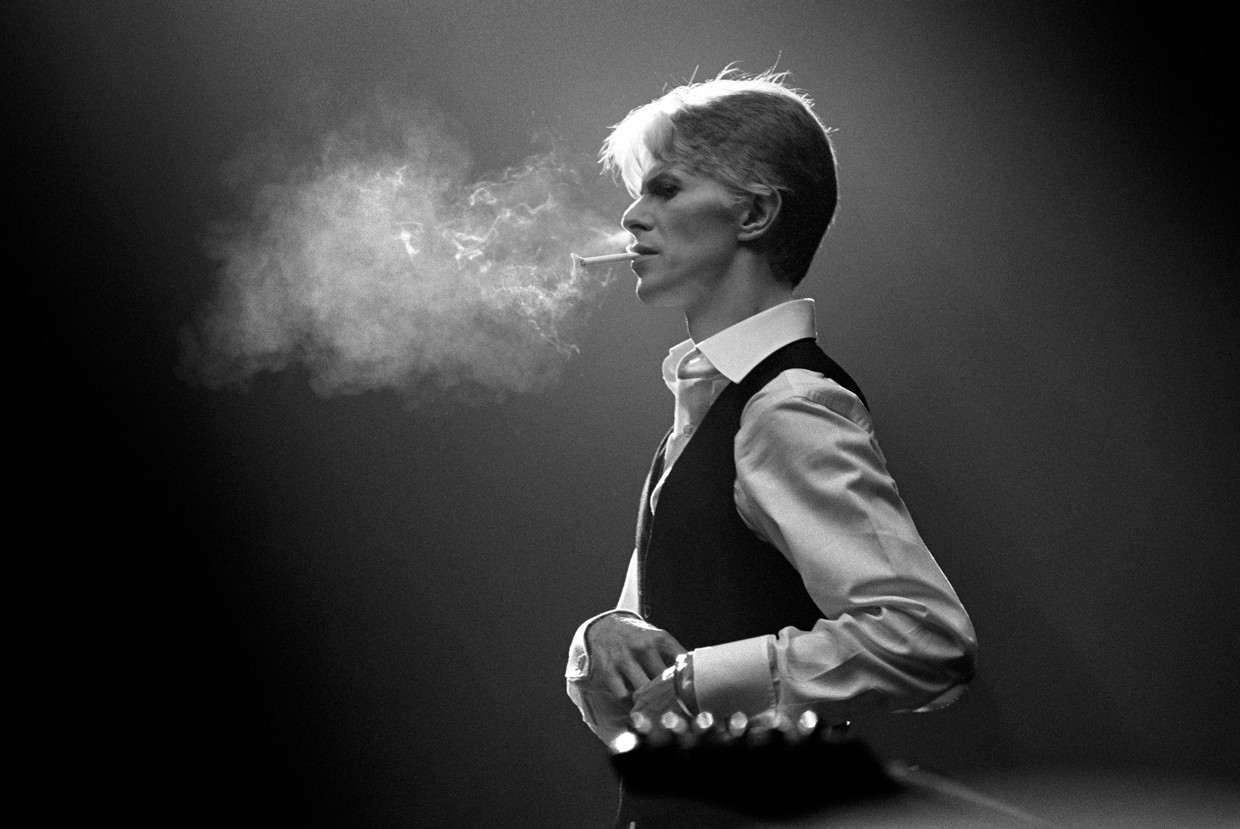
It seemed to be an echo in some ways of the song “Slip Away” from the Heathen album, a record which was in so many ways a new coming into being for Bowie in psychologically pondering the frail and empowering moments of being human. A song and an album of such intrinsic interiority that held both Freudian and Nietzschean implications if one really held into the substantive meanings of the album, that was additionally rendered with images to books by Freud and Nietzsche on the Compact Disc art. “Slip Away” is suggestive of an intensive intimate relationship with someone where the lovers have been lost in the back rooms of bars and hidden enclaves until the breaking dawn where time and meaning have entirely slipped away. As such, was his relationship with Jacqueline and we haunted each other’s memory amidst the desire of wanting to linger and entertain possibilities of a return to a past – to an idealized moment in memory that we could no longer attain in our slipping away from each other.
It could have been death or simply the passage of time where one loses touch, or the sense of affinity unknowingly or unconsciously declines and that similarity in intimacy can never be recreated in the same manner. There are people that don’t see each other in years, but yet somehow remain connected to a similar view on how they experience the tenuous sense of the world, and other relationships that feel stilted and forced after only a few months apart – perhaps those were intimacies that could never have been sustained, and sadly, all that remains are remnants of faded images, unfulfilled emotions, and barely remembered conversations that populate our memories.
As he reflected back on his own life, it was almost without thinking that this person entered his mind as such had been the situation with Isabella, a young beautiful precocious Italian woman from Padua that he had met in his graduate student days at University of Toronto, just rather a year before Jacqueline. Isabella was only there at the university for the summer learning English and living in the same Knox College dormitory, a place that sufficed, yet any sense of privacy was impossible as through the communal meals, anybody’s affairs was everyone’s business and so community gossip reigned supreme. He had glanced at Isabella many times from afar over the long and distanced dining tables, he most often by himself reading Robert Musil’s The Man Without Qualities, as she gossiped and giggled with her Italian friends while sharing side glances with him. He had never really imagined that she had any interest in him, as she swooned with a sense of lithe beauty in which she appeared to barely touch the ground. Yet, very oddly enough after what had seemed weeks but was perhaps only days, he had seemed to notice that she was staring at him more often than not, and they had struck a sense of fondness from afar across those dining tables. He began to feel so very enamored and she soon became all that he could think and dream about as she strutted across the dining room with a sense of forbidden yesteryear glamor. One day he approached her for a date which she immediately accepted, so off they they went a few days later to his favorite bar of 1920’s decor that complemented her own stunning beauty. She nursed her drink while he drank a few in building a repertoire of meaning that transcended their linguistic differences, and somehow out of that mirage an innocent and new born love grew that seemed to defy all odds. From that night on, they were inseparable, and he felt that he had a new life as they spent the summer nights entranced with one another in his room, planning their future at bars on College Street, collapsed into each other’s late night presence in intimate dining rooms in Yorkville restaurants, and knowing the world was theirs as they walked the waterfront. One day in downtown Toronto she went to HMV to buy the gift of music and share with him some of the most transformative albums in her own life and together they build a repertoire of meaning that was precisely forged in the crucible of music. He was so utterly in love with all that she was and is, and he had never felt this high in his entire life as his emotions and being soared in every moment of her presence and all he could ever imagine was the beauty of their lives together unfolding right before his very own eyes. He was totally enraptured and felt that he had found ultimate desire and fulfillment with the beautiful Isabella, who really was his very own Hermione Farthingale.
One day in this whirlwind and intense romance, he firmly decided that he wanted to marry her so he went to Cartier on Bloor Street, bought a ring of dreams, and after dinner and wine in his dorm room he proposed to her amidst the dim lights, music, and head spinning emotion — she accepted his proposal. It seemed that he had everything he wanted and was in bliss. The final two weeks of that summer they were in their own paradise with each other but with baited breath as how was this going to work and where would they live? He promised her that he was ready to move to Italy to be with here, yet she wanted to tell her parents first. After an abysmal and heavy departure at the airport, he returned to his dorm room to await news from her with all the hopes and dreams of starting a new life with his fiancé in Italy. The future never seemed brighter and full of glittering promise. She called him that next day from a party at her house celebrating her return and that night she was going to tell her parents that she was engaged. Days elapsed after that last phone call which was well before messaging and the age of social media where one could only rely on phone and email. They did finally speak and she professed to him that her parents were actually heavily against the engagement which cast a solemn mood on their conversation. Yet, they were still in love and communicated when possible, sending each other love-care packages, yet the wear and tear of long-distance love destroys. The will of her parents prevailed and she succumbed in slipping away and becoming caught up in her own reality and circumstance in Padua.
They had since remained in touch over the years for reasons he could still not process, but that’s how deep and fervent love can continue to exist in strange ways. After a horrible long-distance breakup, remarkably isolating experiences of trying to see her in Padua where he felt like an unprocessed person in her world, and periods of extremely long silence, she still seemed to resurface in his world like a phantom, and although he loved her deeply and intensely he could never exorcise himself of the weight of this love. A couple years later, she had married with another man, bore children, and in this she had always sent him photos of herself and her children, and even entertained the rather perverse but desiring idea of having a child with him. It was almost as if he had become an artifact while he was still alive, and she wanted to retain a piece of him. This idea was not only entertained in a passing moment but it was as if she had full on plans. Perhaps, and not only perhaps, but the weight of this past relationship did indeed seem to always reverberate in his unconscious. A continual slipping away, and after a failed attempt at meeting each other after many years it had firmly seemingly slipped away forever which he finally came to accept to some degree as a great relief since the weight had been lifted in some measure. The issue that remains is that can the real and seemingly tangible impact of intimacy ever really be lifted, or does it remain as an affect which somehow with the passing of time and years becomes to be less acknowledged in one’s consciousness? He was of the inclination that it always retains a wearying power that we wear like a coat on our being and demeanor. We perhaps shed psychological measures of this within the veneer that we sense about the self, but it is still there like a phantom that haunts the specter of one’s own self-image, and the perception of ourselves to others. More than twenty years ago after that love was born, they remain in contact, in continuing to provide refuge and comfort to each other, and they remain dreaming of the day when they can be reunited and be able to finally live their love that remains as a tangible and alienated memory.

The song “Five Years” held such expansive weight throughout his life and perhaps it was a compelling factor that made him put pen to paper. Bowie’s “Five Years” simultaneously inspires while residing on the ephemerality of existence and love. The fleeting and fraught sense of human relationships that incite desires beyond our being and that also cause us to collapse in defeat.
In “Five Years,” Bowie is creating possibilities of life and romanticism between two people while also enabling freedom. The song had also seemed to suggest what is one to make of life, and while one reflects back, as in an instant five years have passed that at times have seemed like an illusion, in other times only a series of moments that could be highlighted or dismissed with reflective happiness, ephemeral moments of passionate or contemplative meaning, and perhaps at times even more so a trenchant exercise in existential survival. The song also seemed to suggest that some people’s lives end tragically, other lives where the potential of youth evaporates in a second, or some lives where only a faint impression of an emotion remains. There is a strident immediacy in life that is being pressured which one must seize, as there is no return, no sense remains of going back to a previous time. Trying to make meaning of so many ideas, people, and emotions within five years seems like barely enough time to inhabit the interiority of all these dimensions as time is always and always slipping away.
These kinds of emotions and feelings led him to very distinctly dwell on all that was and all that could have been with Sofia from Madrid during their graduate student days at the University of Toronto. He had met her the year before Isabella, as they were both in the same graduate seminars in which they toiled over stilted and overwrought understandings of philosophical and cultural paradigms. He had a rather instant sense of connection with Sofia as he was enveloped in her innate cultural acumen and sophistication, natural beauty, how she radiated warmth and love, and so they easily fell into late afternoons drinking wine and whiskey down on Baldwin Street, at other times over pints of Harp at the Duke of Gloucester, and late night cocktails at the Up and Down lounge on Adelaide Street. She was a gorgeous woman of slight stature with beautiful spellbound curly waist-length blond hair and always dressed to the nines — extroverted and always so full of care and meaning. In turn, she was offering her entire self to him, although he was not perhaps entirely conscious of this occurring in the space of his own mind which in retrospect was perhaps one of the greatest travesties in his life which would remain to haunt him forever, as he had not realized the wonders of her interiority that she was nudely putting before him. From the beginning, their camaraderie and friendship was so very intensive as they found themselves aligning on so many perspectives about the world and shared critiques about knowing and thinking, that it was almost as if they had lived together their entire lives. They had so very quickly became rather inseparable from one another in their deprecating humor and shared cosmopolitan vision that was so very enveloped within Bowie’s outlook on the world as in most nights they had to have a least one listen to his album. Outside which was his most misunderstood and visionary album of his entire career in jettisoning an entirely new manner in which to create music.
The most precious aspect of their relationship was that there was a luxurious sense of comfort with each other and all forms of sex were nothing but a celebration of their love and what it meant to be alive. Yet, in hindsight he had quite never really offered all of himself to her through some sort of weird sense of reluctance, and till this day he has never quite fathomed what that entirely revolved around. Perhaps in some ways this dwelt upon a certain sense that he was perceived as an outsider in that graduate program and being too critical of the professors and people in charge, and despite those claims she seemed to be entirely with him, but he was as well rather unsure if she had not been swayed by the masses. It was strange how a region of distrust and wariness had been inserted between them, which had in turn spurred thoughts of doubt from his perspective. Of course, in reality this was entirely not the case, yet the grapevines of gossip even in that age could kill anything. The real tragic fact is that Sofia and him were two people that really did love each other immensely and they were meant to be together — they laughed at the same cultural gaffes, they were both outraged at the same human crisis, and they always smiled at each other — their destinies seemed to be so very enveloped.
Till this moment in time, he also clearly remembers when she told him that she loved him over a casual bottle of Corona beer at the university pub, and he never knew why he didn’t reply that he loved her too — in fact, he did with all his being, but somehow in that moment and in that time, the words did not appear. The strangeness of it all was something within his own mind, but yet she was sitting there as a girl telling him that she loved him and he loved her too more than he could possibly have imagined now and then, but he did nothing. He did love her and could imagine a long life with her, and while he did have nearly one year with her, five years would then never be possible as he had lost the possibilities of a life and love that could have lasted forever in eternal forms of transformation. Something so very very precious had been broken in his non-response, and although they continued to live in the same city over the next couple years, everything was ruptured and lost forever. Human emotions are so very precious and fragile – they need to be respected and coveted as they are the singular most valuable aspect in this world, and we need to hold them within each other in the passing moments of all that is. From that moment on, he was lost onto the world in that period of squandered love in his life. It is so very strange how these aspects of life proceed and evolve, as a few years later it seemed that he had another chance with her, they saw each other – yet the tenacity was too thin – the sustained rich fabric of their emotion and sense of being to each other had become too fragile. They forever disappeared from one another.
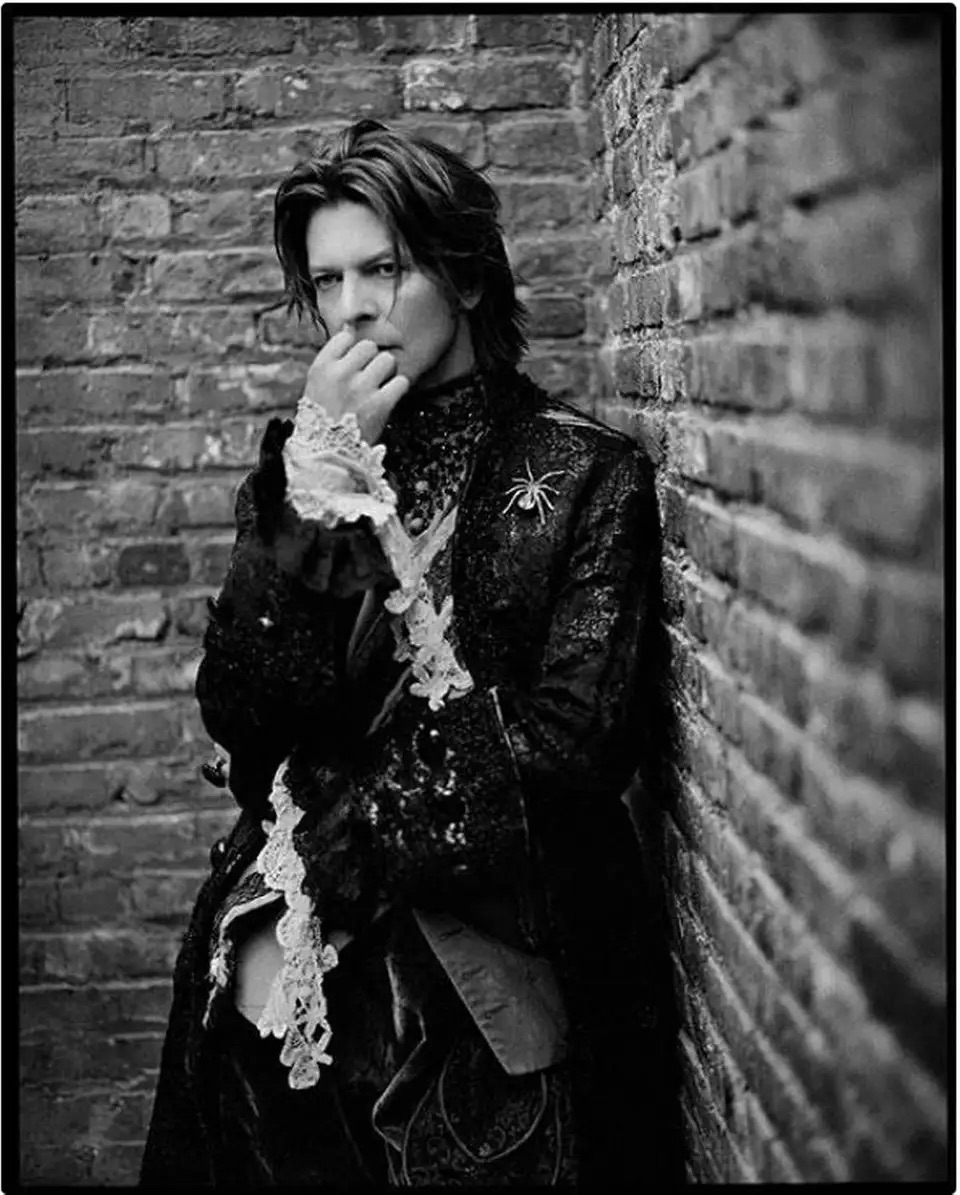
“Bring Me the Disco King” is a very fragile song that came later in Bowie’s life and it feels like one that is also trying to capture a period of his life with a person in a space of lost time and alienated memory. It evokes of trying to bring this back to consciousness which is entwined with a sense of fear of all that was in a particular time. There is a lurking feeling in the scope of this song that echoes across wanting to once again feel what it was like to be engulfed in the nightclubs of late 1970s and early ’80s NYC amidst the excess and spectacle. Another, and much more significant dimension within this song suggests that it was a time of vacuousness and the height of superficiality where one could entirely lose a sense of self and no one really knew anything about the people that inhabited that period. Life became meaningless and there was not even the ability to reflect on it, yet there remains a distinctive resonance that it did hold some magic that can never again be evoked in one’s mind, in conveying a sense that the passage of years places fragments of memories that haunt one’s being. As he thought about this while listening to the song he wondered how many other people had sat in other rooms in other cities and perhaps had had similar thoughts – it was an entrancing idea to think of that unshared yet connective resonance.
Once, he had gone to see Bowie in concert with his best friend Sabina her husband Aidan in Los Angeles on Bowie’s A Reality Tour where they saw him perform “Bring me the Disco King” and it seemed such an utterly lonely and fragile moment to see Bowie making this song come to life by himself without his band onstage, and it left an undeniable imprint on his being about Bowie’s vision on isolation. The three of them had stayed in downtown LA at the Hotel Figueroa where they languished in their suite before the concert over vodka Red Bull’s and were transported to another time in this Moroccan themed hotel in their lounge area that was adrift with floor pillow comfort. The thrill of the three of them going to see Bowie together had captured their energies and imaginations and through song after song they lived eras, thoughts, dreams, and different understandings of how reality could be perceived and contemplated that made one reflect on human experience in provoking and unsettling ways.
The song “Loving the Alien” was one that seemed to strike at some sort of unfathomable core of what it meant to be human in the most passionate of manners as one could perhaps be removed from the banality of social and political constructs that limit human experience. There is a distinct emotion and thought in this song of unfettering or releasing one’s self and finding freedom in how to imagine differently. It was not the original rendition but rather the arrangement that Bowie did with Jerry Leonard that was so ethereal. There was many a late evening when he had sat drinking with Aidan and they both seemed to be able to listen to this song for an eternity as there was something about it that provided a sense wherein one could simply drift into and almost feel as if one were levitating above one’s life and the world.
Within these kinds of feelings and reflections on music and the possible meaning within Bowie’s songs, his entire life had really revolved around the significance of music and Bowie had really seemed to hold his being and mind together during some of the most trying times of struggling to stay alive. It was that, this exact story that needed to be told and it was one that was urgent and that had come rushing to him on December 31st in 2014 during that frigidly cold afternoon in Chicago that once again welcomed the beckoning nature of life in simultaneously reminding him vividly of the past and also surging towards the future. He had gone to the exhibit David Bowie Is with Ximena and what had most intrigued him was the innocence and wonder in which she seemed to experience the life of Bowie in this manner. She was vastly different from him in this regard as she had not grown up with the experience or need that music was an undying necessity of just being able to breath, yet she was so impacted by the experience and a greater sense of connection was forged between them through seeing and hearing the transformation of Bowie through time. She spoke of how she was so entranced with his fashion and seeing him in so many varied epochs of his career. To feel the tenor of her innocence in this manner had nearly almost led him to tears as to how she had not known the world of people that had irrevocably transformed the meaning of existence through music — in this moment he had begun to feel a change in her understanding of the world which had perhaps been laying in wait for a long time. She had always had a sense of difference in her perspective on the world as that was the source of their initial attraction. Through their time at the Bowie exhibit, a greater sense of intensity had also been created in their relationship, and they celebrated this with going to dinner at the Greek Islands restaurant in Chicago where they got drunk amidst the ruins of spanakopita and gyros on a tiny corner table, but that only seemed to serve the circumstance in a better fashion in their new enlightenment of each other. He had often longed to bring her to a greater sense of consciousness about the world through music as for him this created portals on the human experience that seemed unequivocal in opening the mind and inhabiting other spheres in how life could be felt and contemplated.
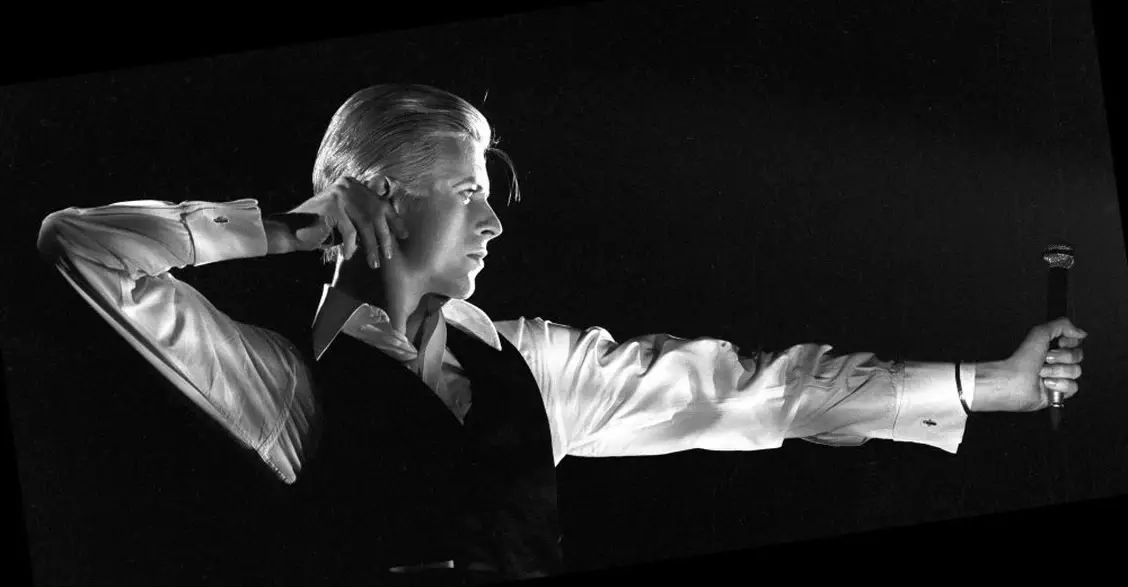
On those frozen streets in downtown Chicago on the magnificent mile, both within and outside the Bowie exhibit, he also began to reminisce on his high school friend William since their friendship had been spawned out of a similarity of perspective as they themselves felt on the utter fringes of their high school. What connected them was music, the style they inhabited and desired, and what most entranced them was Bowie as he breathed a life force into them. They were both as well forgotten historical souls to themselves and what created life for them was the inspirations of the 70’s Bowie who had dreamed of other universes and alternate realities that instilled an outlook of feeling so vibrantly alive in a dead end alley town. He was not sure what had spurred the realization of this connection between William and himself, but perhaps it was was like most human connections which seemed to float to the surface when they are utterly unexpected, and suddenly a link or some kind of bond is forged which becomes poignant or rendered facile, and their bond at that time only flourished. The most memorable times he could recall were of them spinning vinyl record after record from Bowie’s career in William’s basement, or at times when his parents were not around they would immerse themselves in such a song as “John, I’m Only Dancing” which echoed throughout the house. They became more and more fascinated with Bowie and perhaps a pivotal moment was watching the film The Hunger, which even then in those teenage years lent a fascination on mortality. Later on, this seemed to contribute to them inhabiting the mysterious persona of Bowie in their own individual manners that flowed into an obsession with the group Bauhaus wherein Peter Murphy seemed like some kind of strange successor to Bowie, and they immersed themselves in the universe they created in enabling a different way in which to inhabit the earth.
It was Bowie’s Berlin period that was equally enthralling to both of them as it seemed to provide the deepest resonance within feeling “outside” and it is there that their minds could foster and feel liberated. The near cinematic quality of Low was enough to build the wealth of an imagination on, and it also was more than enough to provide a sense of feeling metaphysically free. It was not only the “art” period of Bowie that entranced them, but it was also how he could still mingle in the “modern world.” They desired to mimic this and create this within their own social ambience or perhaps it was rather the opposite inclination that they wanted to escape the restraints of society and that was the edge that Bowie was always coming up against. The album Let’s Dance instilled Bowie on the global stage and for a temporary period it was also embraced as a soundtrack of their youth that they always extended on other levels through listening to his live performances from the 80’s. As he thought about his teenage years and his sheltered sense of coming into his own limited ways of knowing who he was at that time, he felt that Bowie had provided freedom. Freedom from being a teen, freedom from society, and most importantly the freedom to be one’s self with another person.
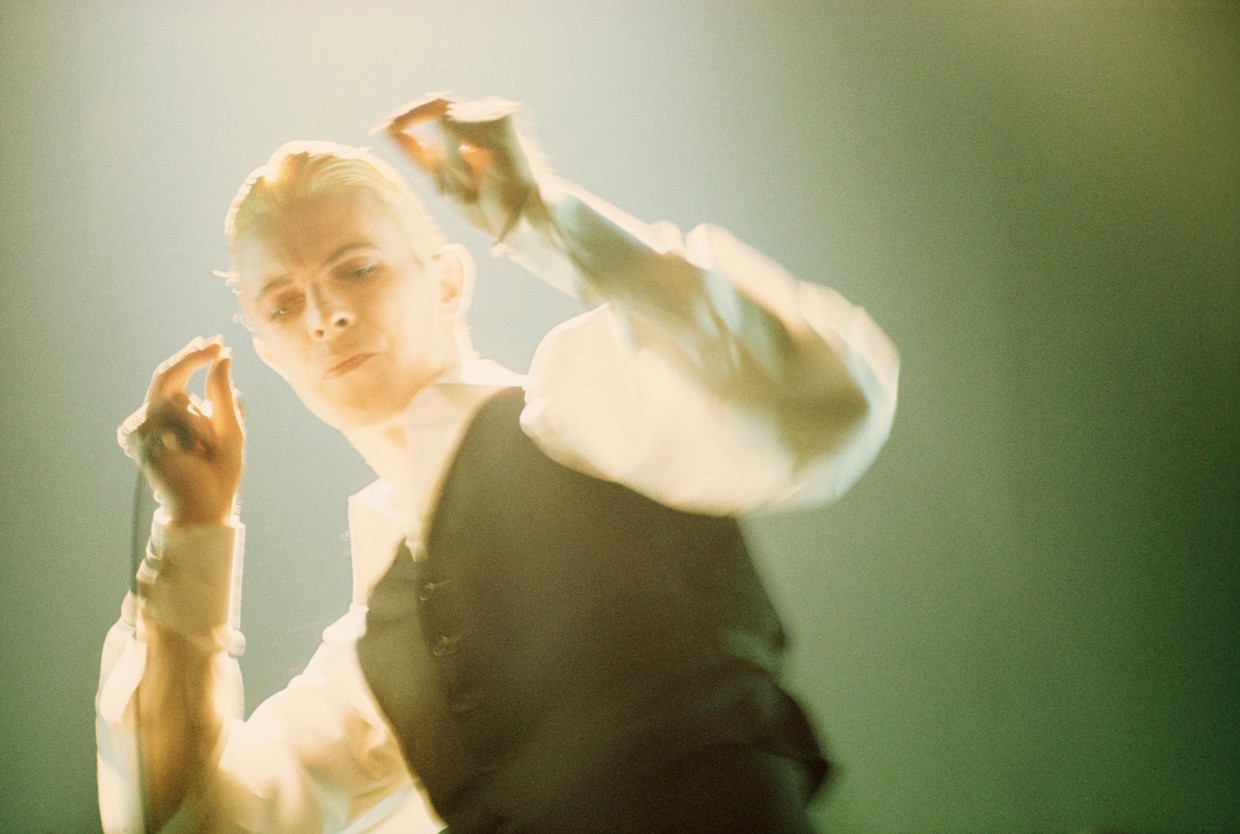
While he was in the Bowie exhibit he was also intently reflecting on his best friend and first love of his life Sabina, and how a different awakening of life had occurred with her in their contemplative immersion and intimate revealing through Bowie’s album Hunky Dory.
“Life on Mars?” was the song that began a different type of fascination with Bowie, as it really posed the question in asking, are there people that feel and think like me on earth? This song was Bowie’s plea for humanity in posing how it might be possible to dream and inhabit a more meaningful life and existence, yet those opportunities had to be seized in a very fleeting moment in time through encounters with another person. The song “Oh! You Pretty Things” on the same album Hunky Dory contemplated these dimensions in an alternative manner in thinking about the possibilities of awareness and enlightenment on what it means to be human. Bowie was always striving for highly nuanced ways of expressing the human condition in making it meaningful and substantive to be weird and different. In this manner, his music was a beacon that incited radical ways to fathom what it meant to be alive, and how one could be liberated from personal and societal repression.
It was well into the fall of 1988, he was 22, she was 19, and Sabina and himself had rather settled into discovering each other and what that possibly meant within how one comes to grip with one’s existence and unfound ways of seeing the world.
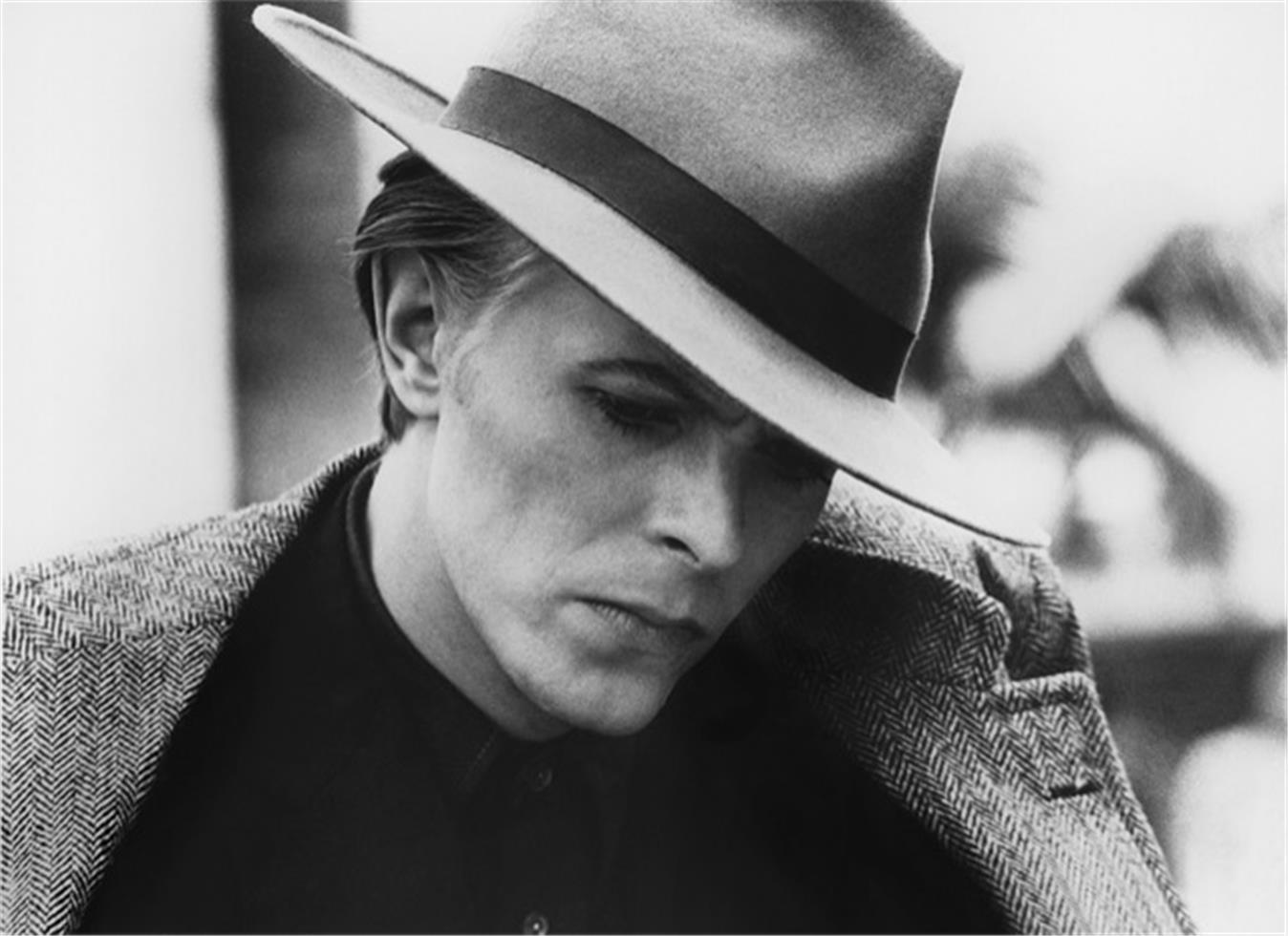
When he first met her he remembered seeing a framed black and white photo of a man he seemingly did not know, but that was before he had seen the film The Man Who Fell to Earth. In the late 80’s, Sabina and he had met at college in upstate New York during their sophomore year. He had gone to college on an athletic scholarship for swimming, and as torn as he was in his adolescence between music and sport, he had remained sundered but still forged on with swimming. The first encounter between Sabina and himself had happened rather quickly since he lived down the dormitory hall from her. They both had their own roommates, and although he could not recall the exact moment in which they met, it was most probably amidst inconsequential pleasantries. Over time they began to talk more and more and as time passed they found themselves becoming quite inseparable. It was one particular night that she invited him to her bedroom to talk and listen to music, and that was the moment he first saw the photo of the film that would impart immense impact on his continual quest of what it really meant to be human. Over candlelight in her room they listened to the intimacy and warmth of Hunky Dory which only seemed to further induce their mesmerization with one another as there was a feeling in this album of Bowie whispering in one’s ear. It was through music that they would forge a connection that would become unbreakable, and it only seemed to him that songs had the power to build a repertoire within one’s self that could also cross unimagined differences and create unbreakable degrees of solace between two people.
A gorgeous fall, as they all seemed to be in upstate New York, and amidst the decay of the season and a further sense of retreat into the interior warmth of winter they fell in love. They were from different worlds and highly varied experiences but this all began to melt away with such ease as their exaggerated differences only heightened the manners in which they complemented each other. She had been born in Turkey and raised throughout Europe before coming to America, while he had spent all his life in Canada besides annual or bi-annual trips to the Netherlands where his parents had been born and later immigrated to Canada well after WWII. Yet, these sources of identities and backgrounds hardly cast a shadow in coming to share something that would carry them with each other to almost glide above the ephemeral. They had begun to inhabit a sense of interiority in which the rust of the fall and the encapsulating snow only best suited the space in which they desired to pass a lifetime. They felt so very natural together as they began to open their intellects, feelings, and passions in creating their very own private universe and deciding that this was how the world had to be seen and experienced. The world as well seemed to fade as they would pass hours immersed in walking, taking beautiful black and white photos of who they were to each other, grasping at imagining reality differently through subdued conversations in an isolated table at their favorite downtown Italian restaurant, in a private corner of a café, enjoying collegiate life over pitchers of beer at Hungry Chuck’s, and most importantly dissolving in their own sphere of a tiny dorm room that was their own infinite world.
Even though they were as well rather overwhelmed all the time by their own roommates, it was college after all and it was expected, as everyone wants to know everything about each other’s life. Looking back it was probably the most splendid time of life as there was always freedom and a feeling of extreme caring about everyone but at the same time one could always escape and recoil into new degrees of feeling the hidden rooms and corridors of intimacy that arch within the comfort of knowing and feeling another person so intensely and vibrantly. Sabina and he quite quickly learned how to escape and the refuge became her bedroom where the photo of Bowie fromThe Man who fell to Earth always provided a sense of comfort, and in her bedroom they began to learn about each other through music. It was music that gave the lifeblood to their relationship and on which its pillars were sustained and immeasurably grew – the imagined fears and ideals of their songs became their reality. It was this – what was expressed by others through their lyrics and songs that gave them the language and bearing of how they saw the world. It was of course also their own interpretation in how it mattered in their own experience of each other which was utterly unique and captivating, but it was also often something so uncanny to revel in when an artist had expressed something that precisely captured how you imagined to possibly feel. This was of course perhaps a common feeling, but what was not common was how radically different they really were to each other and how they could inhabit such similarity in the music of life, that is the music that at that time was so really on the margins of common human experience and that seemed to only speak to those that harbored a sense of discontents with society and its expectations of worn-out traditions and exhausted ways of how to carry the self.
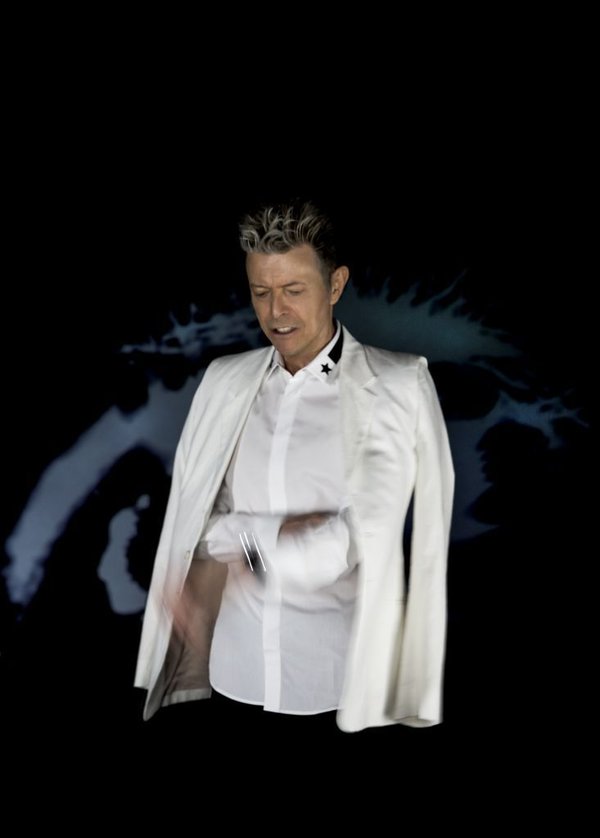
Maybe in some ways, after that initial night of the beginnings of intimacy while Bowie’s photo loomed in the background, everything might have really begun with Everything but the Girl’s Love not Money. Sabina had a vinyl copy of this album which she had purchased in the East Village and brought with her to college. Being still rather fresh from his post-punk days he had not yet heard EBTG, but since his awakening through the likes of Simple Minds he was more than open to new sounds and how that could possibly lead him to explore other ways of imagining what it meant to be alive and sharing these new feelings with another person. The center of their lives and getting to know each other began to become more and more immersed in the joyful melancholy of late 80’s indie pop and other more reflective alternative music that led them further and further away from what other people around them were listening to, and while they swooned within this, perhaps it created a degree of isolation. It is not that others did not share their ingenue sensibilities as most certainly many were wildly into such groups as Depeche Mode, OMD, New Order, and The Cure, but they rarely seemed to encounter these people in their daily lives. The reality became that they had begun to discover a passion for music on a grander and yet often on a more intimate scale that was also entwined with a curated fostering of the life of the mind. They hurled themselves into the narratives of such writers as Marguerite Duras and Naguib Mahfouz, while the sounds of early EBTG established a sense of fresh innocence between them as the ambience of what Tracey Thorn and Ben Watt sang about spoke as lovers to them through their songs that seemed to come from an isle of retreat in their own world, as they also explored other worlds in French Indochina and Egypt. Through the early years that Sabina and he shared at college where they constructed their own often impenetrable world it seemed that EBTG were always there with every new album to remind them of their innocence and youth which resonated so within Idlewild after they had soon met and then of course years later in Walking Wounded which was so utterly significant in their lives and world as they bought that album together on its release day the 6th of May in 1996 at Tower Records in NYC, and then listened continuously to the sparkling sounds of this album until 4am that night.
In Syracuse, he recalled many a late sunny afternoon in their small dorm room, which seemed larger than the universe, where they would lay on their backs while surrounded by the sounds of everyone slowly beginning a night of partying, and they would become absorbed in the soundtracks of their lives that was Love not Money and Idlewild. These albums at that time in 1988 seemed to capture all of their innocent love and hope that they were to each other, and that was the dream that they lived in, or perhaps to put it best it was their “Dream within a Dream” as the group Propaganda had sung on their album A Secret Wish. As he thought back on listening to this song with Sabina, it seemed to express an intent dimension of how psychologically they had struck upon a similar core in which they were able to create such an incredible wonder of living within a dream that was their sole creation of reality — their beautiful and resplendent innocence, intensity, and love was a place where was he would long to be for his eternal mortal days and perhaps in their imagination they would always remain there together.
Amidst this translucent beauty they also began to languish for hours and years with The Smiths and Morrissey as their words and music soothed their souls and promised to them that what they felt was not solely their burden. In this sense, the weight of being became profoundly lighter in which they could experience the passion and vivacity of life. Their relationship had indeed begun right around the time of the demise of The Smiths and through the perhaps lingering sadness of this loss, Sabina and he remained irresolutely entwined even when they were no longer lovers. It was with sadness that The Smiths ceased to exist as a group, and besides Morrissey continuing solo, there would remain for the rest of their lives a deep sense of comfort and often happiness that was felt when immersed in their songs. At that time in Syracuse and through The Smiths, they had begun to distinctly feel that they could only really live within the darkness of night as it was only there that they could really feel and perceive the ennui of all that is. There were of course indeed times where it was possible to feel the pleasure in life through the waking sun but it always felt as if one’s self was rather diminished in the brutal light of day. The utterly unique promise of The Smiths was that they made feeling odd and out of place as the bereft and beautiful condition that humans had to accept if any kind of meaning was to be imparted to this short time on earth. While there was certainly the day where life did indeed seem only but interminable – how could this then be considered differently? Perhaps the answers to this was what The Smiths were longingly searching for again and again within every lyric and song. It was not simply just the frustration and irascible weight of youth that this concerned but it was the impact of those traces on every human being and how one could learn to see the positivity of being alive within those immeasurable scars. There was certainly an ache of existence that was being exposed through their music, and it was as well the definitive ache of existence that Sabina and he resided in since it was exactly at that cavern or precipice that they discovered each other in leading to creating their own unfathomable and glorious reality that echoed the happiness and melancholy of The Smiths.
It was with a sense of lament or longing for melancholy that led them deep within the interiors of the world of David Sylvian and that particular immersion was perhaps precipitated with the road trip that they took from Syracuse to Montreal. It was deep into a red and gold upstate New York autumn and in that delightful chill and foliage they arrived into the splendor of urbanity in downtown Montreal which resonated so intimately in the resiliency of their youth. They felt so entirely at home in the bilingual fashion of regulatory black, amazing shoes, beautiful people, sidewalk cafés filled with smoke, café au lait, and red wine. It was as if The Style Council’s album Cafe Bleu had come to life and all that was ringing in their minds were the songs “The Paris Match,” “My Ever Changing Moods,” and “You’re the Best Thing.” They were resolutely in love and it was only fitting that they lodged for those two nights at the Hotel D’Amour in a small well-worn but fitting room that seemed to capture Montreal in a different epoch. They did what was best – walked the streets, sauntered into shops, bought slim pants and bolero hats, smoked, hung out on sidewalks drinking café and wine, and had immersive sex in D’Amour where they were forever entwined in their own mortal coil. It was on their second day there that they came upon a hidden and very appealing record shop with hardwood floors and black interiors, and it was in that moment that they discovered Sylvian’s album Secrets of the Beehive – an album that would last an eternity and that could almost suffice as the soundtrack of their relationship. Sylvian’s masterpiece would always remain a very intimate and private album for them that well into the future was always a painful pleasure to hear whenever “September here’s again….” Sylvian’s disjointed monochrome sense of existence fit well within their portrait of being in almost providing a manner to encase the self from the exterior world and only letting it in within the best aesthetic ambient implications, as did the song “When Poets Dreamed of Angels” which gave such surrender to all that was and all that could have been for these forbidden lovers.
They dove in with all that they possessed as they only desired to float and inhabit the space and comfort of this music – that music of a dream-house that Sylvian promised in his song “Maria.” It was not at all unlike the affinity that they also simultaneously developed for the band This Mortal Coil whose eeriness was like an envelope of comfort as their album Filigree and Shadow often became their lullaby. The opaque darkness of their music that flittered between utmost resonant intimacy and dissonance seemed to echo how their relationship felt to themselves and reflectively in society. He had at times also felt this similar sense of being but it was only one that he had in solitude in his years when he was so utterly beguiled with Siouxsie and the Banshees, and it was within that epoch of his teenage life that their music provided a sense of a world that he could inhabit and even possibly gave him the only sustenance of which he remained alive today. In the utterly dismal array of growing up in a small town the only capacity to remain alive would be to revert to inhabiting imaginary worlds. He literally had survived through inhabiting Siouxsie’s dream-house as a vivid dream, and through that journey he had come to realize what Bowie dreamt through posing the song as a question — “Life on Mars?” Sabina and himself remain forever pondering the significance and meaning of the question mark in that song title. Years later, they continually talk about what it means for both of them to think about the implications of Bowie’s song “Where Are We Now?” in their own evocative memories of each other.
Bowie became a life force of significance that continues to transcend his life till this day, yet it remains up to the interpreter to decipher what this means in your own life. He was also one life of a person who fell to earth in giving us the remarkable possibility to dream and imagine other worlds and emotions of being human through song and stage. Through his music and voice across the ages, Bowie created indelible senses of intensity and vivacity in exploring ideas and feelings on isolation, alienation, time, and love, and in this one can create a passionate interiority of living through continual degrees of resonance and dissonance. It is perhaps only within the continual rub of these spheres that one can foster a life of sustained meaning.
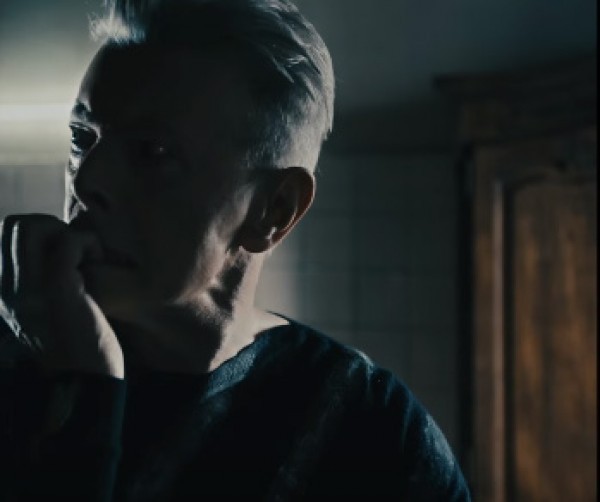
Postscript
At that point in existence when it seemed that the music of David Bowie would no longer surface in his retreat from the world, it then came as an utter wonder that there appeared the vision of a song called “Blackstar,” which seemed like a possible resolve to the problems of the world today as it swayed as a deprecating anthem on global tensions, but also as one that rang with hope and optimism of a better world and life in its refrain. There was always a positivity that could be relished in the negative when it came to what Bowie could envision in providing expression to the intangible.
The sense of anticipation was more than immense in waiting for his album of the same name which was to be released on January 8, 2016. It was the only day he could think of as the song “Blackstar” played again and again in sound and mind. “Blackstar” was also a remarkable trajectory of Bowie’s existence in dreaming about life and music as Major Tom appears again as a sort of epitaph that awaits burial which makes one dwell in the echo of “Ashes to Ashes” in recalling the prominence of his alter ego Major Tom and how he led us through the travails of life from the beginning with Ziggy Stardust.
It then seemed as if only moments had passed when as if in a dream, Ximena was trying to rouse him after too much wine the night before in his immersion in the album that is Blackstar. The news she was to tell could not have been any worse and it seemed as if the universe had collapsed as David Bowie was dead, and it then seemed that he no longer knew who he was, as life no longer had any bearing. All he could feel was his own isolation and alienation as the universe descended into barren cold and darkness. Without Bowie we are unhinged and forgotten souls.
We can hold onto the glimmers of inexhaustible beauty in his final work as a promise to our humanity in reflecting on someone who pushed the exact boundaries of what it meant to be human through the gravitas of his life and music in which we can dwell as long as our existence allows. The intimate palpable resonance of Bowie’s music continues to forge connections to one another in creating a life of meaning of substance as we keep reimagining what it means to love as we live through our own time.
I remain dreaming of Bowie amidst memories of friends and lovers as his final album Blackstar looms as a profound meditation on mortality and thinking about the significance of one’s life in the universe, as we continually remember and listen to all that Bowie has given to us.
To David Bowie, and all my friends and lovers, I miss you — you are beyond time.
xoxo
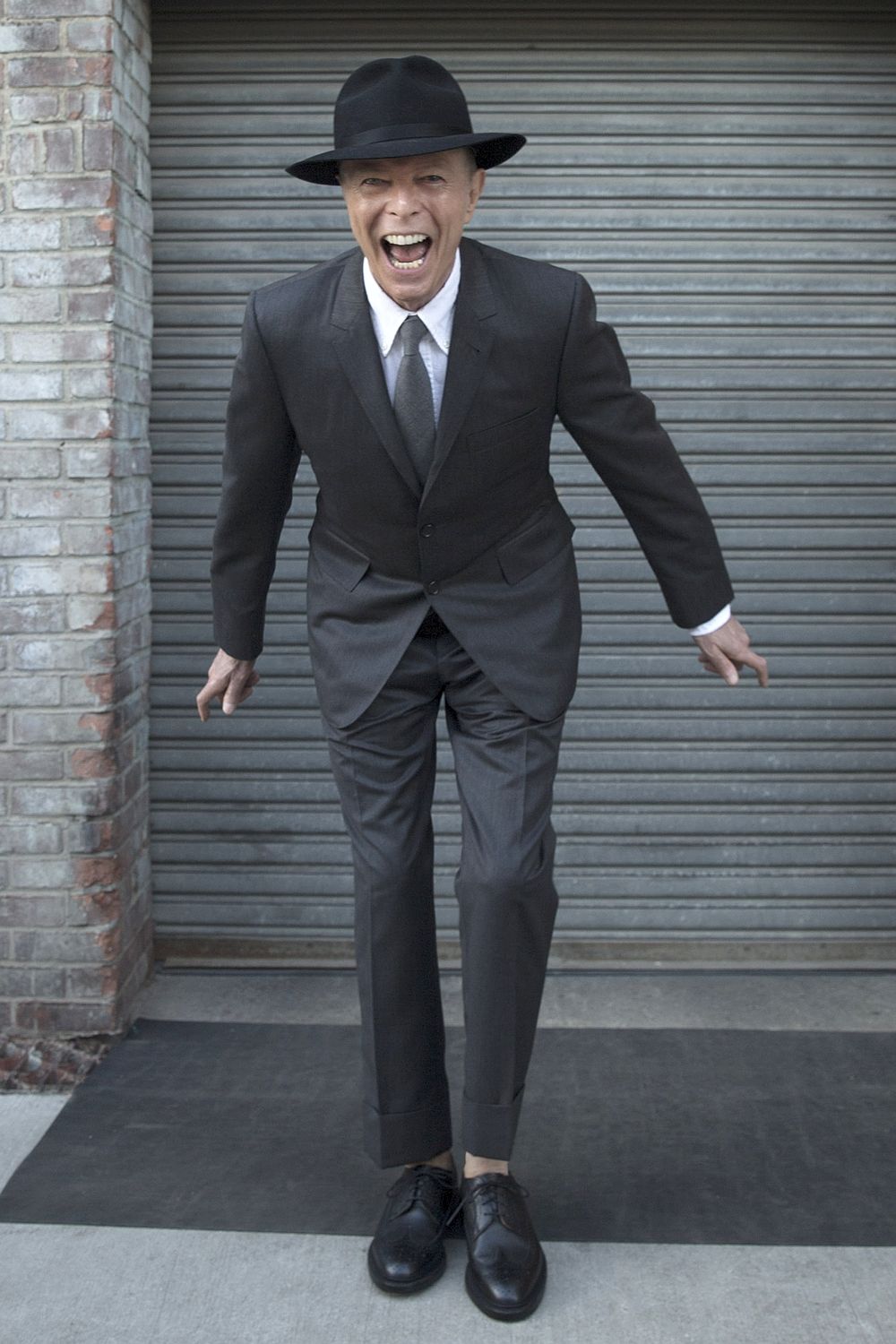
— —
David M. Buyze is a writer and professor on music and culture, in addition to writing and teaching on various humanistic dynamics involving such issues as race, religion, conflict, nationalism, and postcolonial paradigms. He has a PhD from University of Toronto, and is particularly interested in cultural, social, and political issues of marginalization and how existential, social, and national dimensions of liberation can occur within literary and artistic forms of expressions. He is very passionate about the power of music in enabling people to vibrantly experience the world and think about existence in transcendent ways. Connect with him on Instagram @davidbuyze, Twitter @BuyzeDavid, or via email: d.buyze@tcu.edu
— — — —
Works Cited
Critchley, Simon. Bowie, OR Books, 2016.
Morley, Paul. The Age of Bowie: How David Bowie Made a World of Difference, Gallery Books, 2017.
:: David Bowie ::

